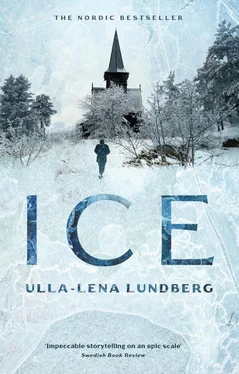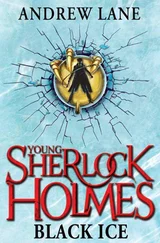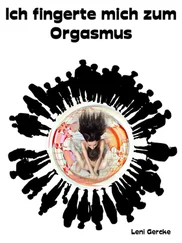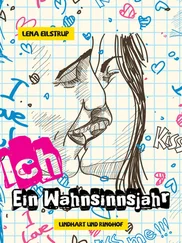There was a great deal that he heard afterwards, and his already multifaceted congregation gained one further dimension— they appeared to possess intimate knowledge of the various types of distilled spirits, knew the names of the most exotic brands, and seemed to have considerable insight into the prices they would bring on the black market and in restaurants. He himself was like a newborn baby in that area and full of conflicting emotions. On the one hand, he should strongly disapprove and condemn what had occurred. On the other hand, it was a manifestation of the anarchic and pragmatic attitude towards land-based law that he found so exhilarating and admirable in his sovereign Örlanders. On the third hand, he saw more clearly than ever before that he was excluded from certain aspects of their lives, no matter how much he had convinced himself otherwise.

Chastened and torn, he turns inward instead towards his neglected children. During all the preparations for his installation as vicar, Lillus has her first birthday. At breakfast, Papa puts a rose on her plate. Quick as a wink, she stuffs it in her mouth. Mama leans forward and digs it out amidst Lillus’s injured screams. “On her plate!” she scolds her husband. “You know she puts everything in her mouth, and you put it on her plate! We’ve been trying to teach her to eat only what’s on her plate!”
Papa looks abashed. Thoughtless. As foolish as father Leonard himself. But was it really so dangerous? Anything Lillus doesn’t like, she immediately spits out. She investigates things by stuffing them in her craw, and there an automatic sorting process takes place. Stones, bits of wood and birchbark from the woodpile, candle wax, soap, napkins, pen wipers, erasers, buttons are all rejected. As far as they can tell, she rarely swallows things she shouldn’t, and when she does, they presumably come out the natural way. She chews larger things experimentally. The parsonage contains nothing at Lillus’s height that she hasn’t nibbled on. Towels, curtains, tablecloths that hang over the edge—all have damp hems, and she chews on the hem of her dress and on her collar, and she tastes boots and wool socks in the hall. Her father notes that she goes about it calmly, almost scientifically. Mama rushes over and stops her, but when Papa sees her gnawing on the leg of a chair in the parlour, he laughs and knows what he’ll say next time some sailboat visitor asks why the Örlands are so barren. It’s because of Lillus, he’ll say. The Örlands were once covered with pine forest, but then Lillus came into the world and started to nibble. Eventually the forest was chewed down, and then she started on the broad-leaf trees and the bushes. But mostly she munches on the furniture and accessories in the parsonage. Miss Woodworm, he calls her, the scourge of the Örlands.
She’s beginning to be so much fun, he thinks. She’s started to walk, and soon she’ll start to talk. He can already communicate with her. They play while Mama milks the cows. “What does the cow say?” “Moo!” “What does the ewe say?” “Baa!” “What does the pig say?” “Oink!” “What does the kitty say?” “Meow!” On an impulse, he says, “What does Papa say?” Lillus is in ecstasy, laughs so her eyes disappear. “Moo!” “Does Papa say Moo?” he asks, and she shouts, “Moo!” and throws herself on the floor with hilarity. Then he says, “What does Mama say?” She stops for a moment as if weighing his ability to get a joke. “Usch! Pugh!” she says, looking at him out of the corner of her eye, which sparkles with merriment. He is so surprised that he whoops with laughter, and then she laughs too. When Mama and Sanna come in from the milking, they are lying in a heap on the floor shouting, “Moo!” and “Usch pugh!” and “Baa!” and “Moo!” and “Usch pugh!”
“What are you doing?” Mama wants to know. “Don’t get her all excited just before her bedtime!”
“Sorry,” he says. “Do you think a person can have a sense of humour even at this early age?”
“Maybe,” says Mama. She has already dragged Lillus off the floor and Papa stands up shamefaced. She examines Lillus, who has accumulated new stains and wrinkles since she saw her last. Her hair is like Kivi’s Seven Brothers , the whole child like an unmade bed. “Sanna was always much tidier,” Mama says. “Lillus looks like she lived in a sty, and yet I run myself ragged trying to keep her clean.”
Lillus screams and cries. Left to herself and Sanna and Papa, she is sunny and content, but Mama, who does the actual parenting, finds altogether too much in Lillus’s character that must be driven out and replaced with regular habits and sound morals. In principle, Papa agrees with all of this and bows to his wife’s methods because she’s the one who takes the day-to-day responsibility. But he understands why big tears run down Lillus’s cheeks. Lillus doesn’t like regular habits. Left to herself, she happily takes a couple of naps in the course of the day, rolled up under the cupboard or next to the tile stove, but when Mama discovers her, she hauls her out and forces her into bed, and then she can’t sleep. One of Mama’s tasks is to teach Lillus that you take naps in bed, and that you don’t eat when you’re hungry but at fixed times. When she wakes up at night and cries, Mama lifts her crib into the study and closes the door so she’ll learn not to expect to be picked up in the middle of the night and coddled. At night, you’re to sleep, and in the morning, you’re to wake up bright and cheery!
Regular habits and sound morals are well and good, but it’s a little sad for children raised with such consistency. Sanna, who is Lillus’s other influential mentor, makes no such demands but is more sensitive to Lillus’s nature. When she has fallen asleep somewhere, Sanna doesn’t report the fact, although she answers when Mama asks, and when the sisters work on something together, there are no screams or tears. But there are when Mama gets involved and gives Lillus instructions. Poor Mona, Petter thinks. Someone has to do the essential parenting and so be the least popular person in the house. It’s not fair. Easy for him to be popular, he who only appears in their lives sporadically and gets all the love.
The question now is whether he has witnessed a newly awakened sense of humour in his fifteen-month-old daughter. There are many reasons to think so, and there is a great deal going on in her present phase of development. In the kitchen they have a newly arrived household piglet in a box by the stove. There he squats, shivering and unhappy, bereft and fearful. Here the priest sees the awakening of compassion in Lillus, the realization that other creatures are like us. She sees how frightened he is, and how utterly alone. His skin, which is like her own, trembles over his whole body, his eyes blink in terror, he drools a little the way she does and whimpers. “Oink, oink,” says the piglet, and then Lillus goes to him in his distress. Glowing with compassion, like the angels who came to Swedenborg in his deepest adversity, she sits down by the box and pats his head, the way Sanna often pats hers. She talks to him in a friendly tone of voice, and the piglet listens and understands. He takes small hops with his legs and leans across the edge of the box and nudges her with his head, and she nudges back. He has stopped trembling and found courage and hope, secure in the knowledge that there is another creature like himself in this world.
The telephone rings in the study, and Papa has to answer it. It’s a long call and, when he comes back to see what’s become of Lillus, she’s lying in the box beside the piglet. Both of them are asleep, lightly, silently. In his sleep, the piglet is sucking on the hem of her dress, and she has a potato skin in her hand that she has shared with him. It is hardly a sanitary arrangement and ought to be stopped, but Petter finds it difficult to tear her away. It’s as if he were looking into another world where there is no distinction between species. Carefully he retreats to the dining room and sits down with a newspaper so he can keep an eye on Lillus but can pretend that he didn’t see her climb into the box with the piglet.
Читать дальше













